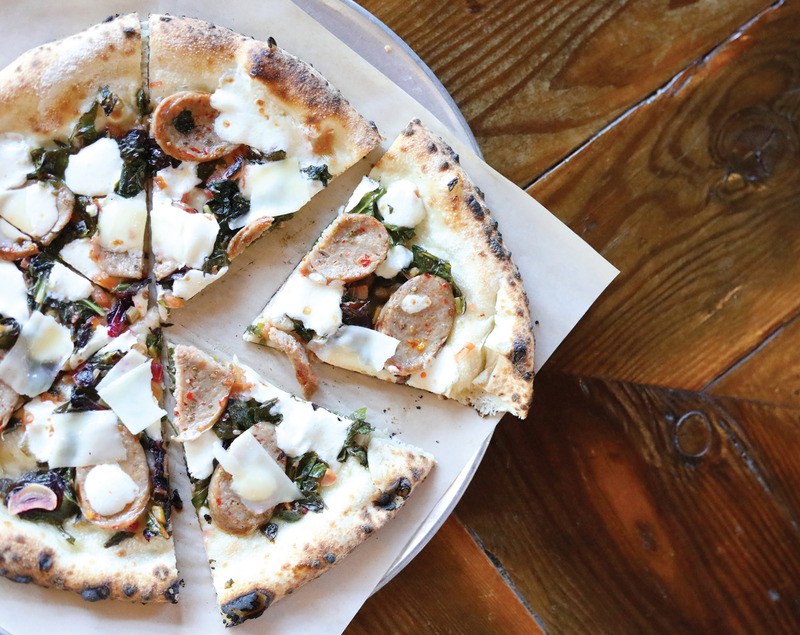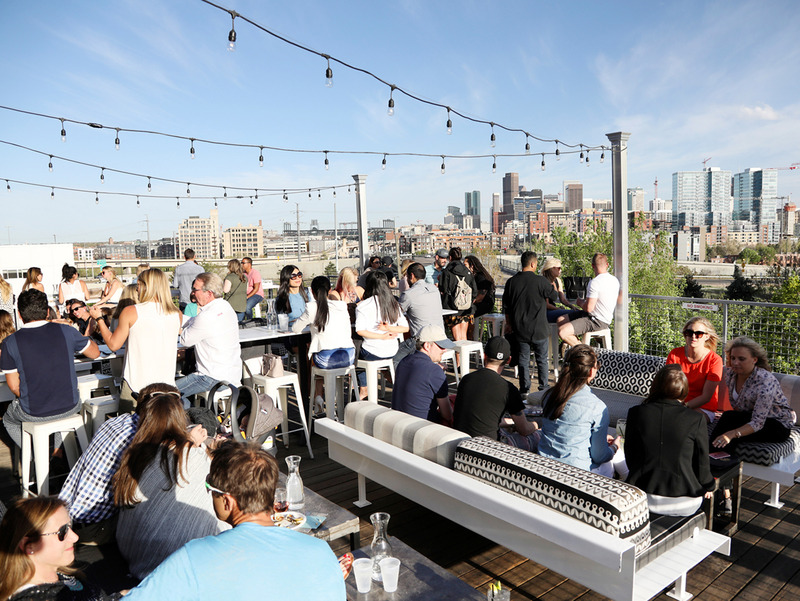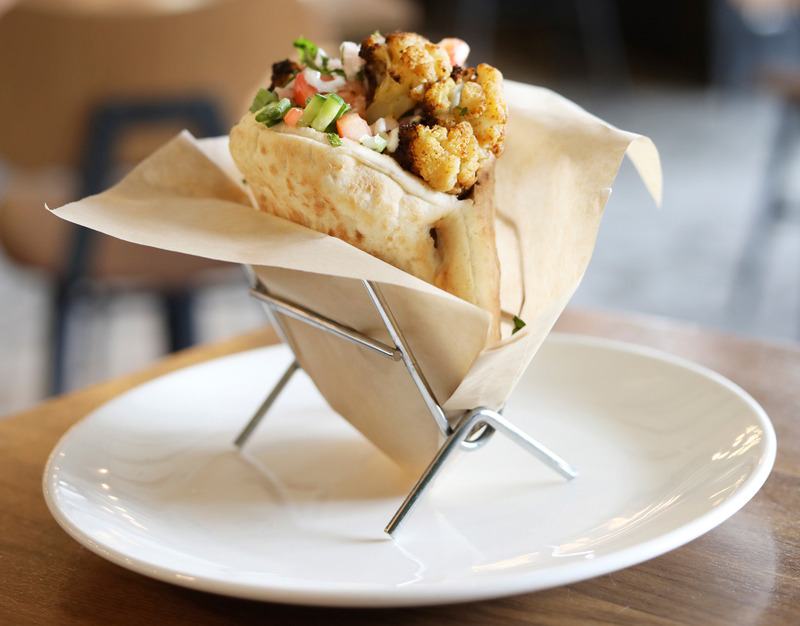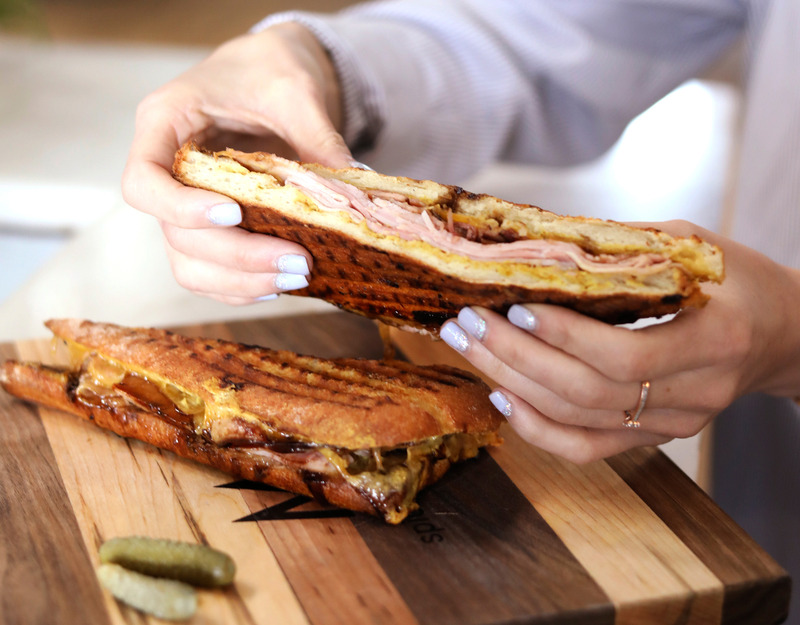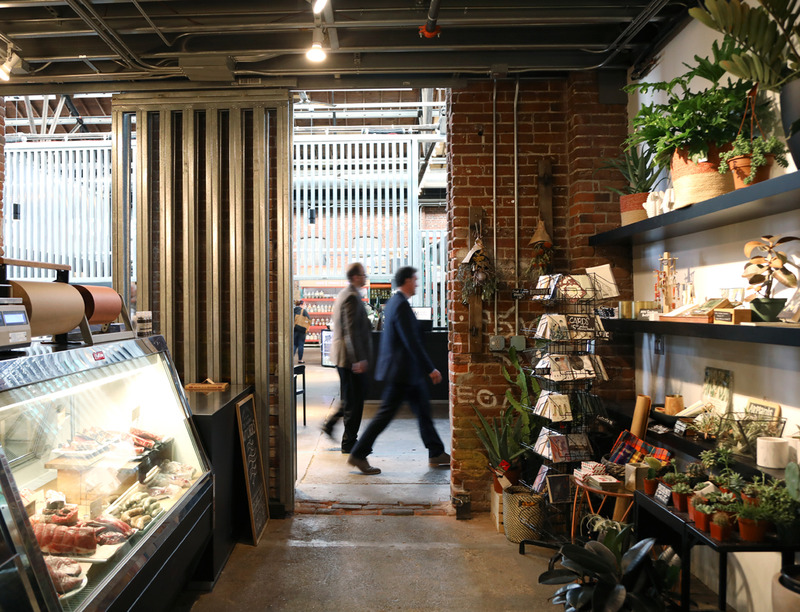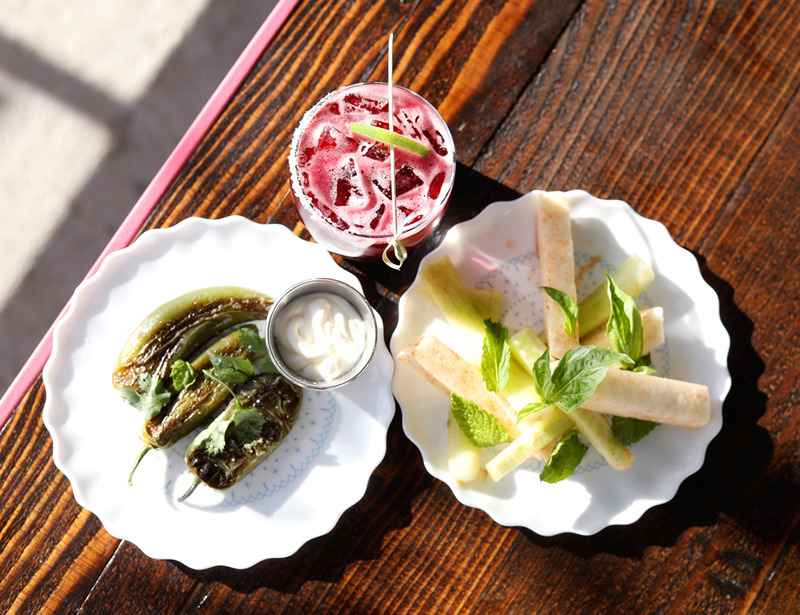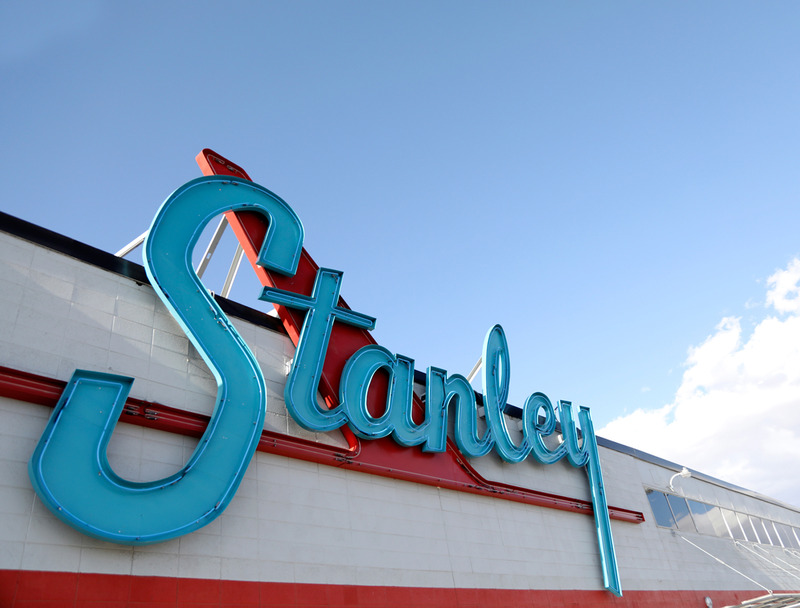The Local newsletter is your free, daily guide to life in Colorado. For locals, by locals.
When I first ate at a Singapore hawker center many years ago, I realized that it was what a food court should aspire to be: common seating and walkabout ordering without the franchise mediocrity found in American shopping malls. Proud cooks turned out brilliant dishes (laksa, satay, chicken rice, Indian pancakes) from kitchens not much bigger than what you’d find in a modest RV. Since the ’70s, thousands of itinerant food-stall owners had been corralled into these centers for reasons of hygiene and urban order; hundreds of millions of dollars were spent on what was basically a tidying-up project, with the Singapore government moving mobile-cart vendors off the streets and into centralized, permanent stalls. The unintended consequence was the happiest concentration of quick-serve deliciousness on Earth. There are now more than 100 hawker centers, the best of them buzzing with the chatter and slurps of families and friends out on the town. Globe-trotting foodies fly to Singapore for hawker feasts, and blogs debate who serves the best “char kway teow” (fried rice noodles) or “rojak” (a fruit, vegetable, and fried dough combo dressed in a sweet, spicy, sour sauce). Last year, two Singapore hawkers earned the first-ever Michelin stars given to street food. And I’d happily trade a meal in any Paris three-star joint for a night at a hawker center.
The best of these Singaporean centers is what I want from an American food hall: definitive cooking, a convivial atmosphere, great variety. Food halls have, in the last decade, become the must-have accessories of our eating-obsessed age. They are resolutely urban and, in the American style, multicultural, relying on our exuberant appetites for arepas, banh mi, porchetta, and poke. Vintage buildings are favored, with open ductwork in the ceilings and meticulous font work in the signs. The vendors tend to be independent, not franchise, operators. Some food halls are exclusively about à la minute eating; others double as markets. And—especially in Denver—there’s booze.
Three food halls have opened in the Mile High City over the past four years—the Source, Avanti Food & Beverage, and the Denver Central Market—making Denver competitive with the fully self-artisanalized city of Portland, Oregon. Then came Aurora’s sprawling Stanley Marketplace, which folds a food hall vibe into an ambitious industrial-chic mall venture. For this review, I spent weeks making the rounds at each hall—plus the Stanley—sampling more than 60 dishes from dozens of vendors.
The Denver Central Market is the best local example of the restaurant-plus-provisions approach; its canny vendor mix (curated by restaurateur Jeff Osaka and landowner-developer Ken Wolf) draws crowds from the scores of businesses that have invigorated Larimer Street and its stylish surroundings. These are customers who can afford a $16 agrodolce pizza for lunch and cast a lustful cook’s eye on a $70 aged rib-eye tomahawk steak from the Local Butcher for their weekend dinner party. With a fishmonger, a bakery, and a produce vendor, this food hall covers a lot of edible ground.
Surprisingly, given the automatic appeal of a porchetta sandwich from SK Provisions or brick-oven pizza from Vero—neither of which wowed me—the finest thing I ate at Central Market was a pita sandwich with cauliflower from Izzio Artisan Bakery. Such serendipity is one of the pleasures of ordering at a food hall. For its near-perfect sandwich, Izzio stuffs a rugged whole-grain pita with roasted cauliflower and vegetables, ladles in lots of tahini sauce, then tops it with parsley and pickled onions before setting the construction on a little cradle so you can carry it to your table like some sort of trophy.
Another treat was the shrimp cocktail from Silva’s Fish Market, with a fan of sliced avocado and a tangy sauce somewhere between cocktail sauce and a Bloody Mary. It came in a tall ice-cream-float glass, crowned by a huge fried prawn, and went down nicely with the honey-inflected Bees Knees cocktail from Curio, which is only $6 at happy hour. Curio is the most crafty bar in any of the food halls, and the seating area around it forms the beating heart of the space.
Avanti Food & Beverage, a self-described “collective eatery” in LoHi, is as close to the Singapore hawker-center model as you’ll find. Its developers nixed provisions shops in favor of seven tiny kitchens in modified shipping containers, plus bars on two floors and a roof deck. Burgers, pizza, shawarma, arepas, and Italian street food dominate. At night, it’s a full-on scene, mobbed by young Denverites. I recommend going with a bunch of friends who can scatter to fetch dinner from the vendors and then share the food around one of the big tables on the second floor. We liked the daily special pizza from Brava, with its well-charred crust, bitter greens, and juicy pork sausage. A glass of Odyssey Heliocentric Hefeweizen from the bar was the right pairing for Chow Morso’s polenta fries—crunchy morsels shaped like large dice, succulent inside, and served with a slightly odd, tart, fruity tomato dip that tasted Asian-esque. Also good were the Regional’s creamy, corny shrimp and grits and Bamboo Sushi’s oddball nachos. Bamboo is a Portland import, admirably stressing sustainability, but I haven’t been thrilled with its sushi. The nachos, though—jumbling tuna, crab, yuzu guacamole, crispy onions, garlic, aïoli, eel sauce, and corn chips—are nacho-satisfying without the tonnage of a Tex-Mex pile-on. (Bamboo will depart Avanti for a brick-and-mortar location next month; QuickFish Poke Bar, owned by the same Portland-based restaurant group, is set to take its place.)
The Source, when it opened back in 2013, seemed a bit brave and lonely in its imposing 1880s brick foundry on Brighton Boulevard. But Zeppelin Development knew that boxy condos would soon sprout up around it. A neighborhood is being manufactured in RiNo, and the Source will have the catbird seat as the population booms; Zeppelin is busy adding a hotel with more shops as well as a new development at 35th and Wazee streets—Zeppelin Station—which will house a food hall on the bottom floor.
Today, it retains a pleasantly chill vibe compared to Avanti’s buzz or Central Market’s businesslike bustle. It’s still sparse and specialized, offering sour beer flights, fancy bottled liquors, expensive cheeses and such, plus two sit-down restaurants: Comida and the always-inventive Acorn. One can sip a Boxcar Coffee Roasters cortado while watching a butcher flense a massive piece of cow behind the window of Western Daughters Butcher Shoppe, then pick up a $9.50 loaf at Babettes (some critics say that bread is burnt, but I say it’s eccentrically caramelized) or a few interesting spices from the bulk jars at Mondo Market.
Mondo, which specializes in hard-to-find ingredients for cooks, also serves very good, properly crisp panini; on one visit, I enjoyed a daily special with pancetta, fig spread, and mustard. Try one with Boxcar’s root beer milk over ice for an elevated diner experience. Then wander down to Crooked Stave for a flight of three-ounce beers. I liked the Petite Sour Raspberry (“wild ale aged in oak foders with raspberries”), which arrives without a shred of berry sweetness to tame the pucker, and the brewmaster’s “sourless” IPA. Next, stroll over to Acorn, whose small-plate dinnertime experiments are, to me, vastly more interesting than its lunch offerings.
Finally, I made my way to Stanley Marketplace in Aurora. As noted, the Stanley is not strictly a food hall, but its layout encourages wandering, and you can certainly move from pub to restaurant to bakery for a multicourse meal.
With its second-floor, factory-style catwalks looking down into restaurant and retail spaces and its massive hangar for public events, the Stanley is a reimagined suburban mall featuring independent, local businesses. Aside from the restaurants, there are clothing and doodad shops, workout spaces, and even a dentist. It’s a brilliant reclamation of an old aviation factory, kid-friendly and very ambitious. Locals who hunger for Five Points or RiNo style must be praying it succeeds. Success is not yet obvious, though—outlets in the Stanley have been slowly opening since late 2016—and I would think that, like any mall, it needs an anchor tenant, perhaps some sort of interesting supermarket or a seasonal farmers’ market of a scale not yet seen here.
Comida is a great place to start, though, with street snacks and fresh juices you can enjoy at the counter. Try the agua de Jamaica or pineapple-habanero margaritas, and pair your drink with salty roasted jalapeños tamed with crema or jicama and cucumber with chile and lime. Head on to Denver Biscuit Company for the Winona—a biscuit with fried chicken and pimiento cheese—which is righteously good; match it with the rhubarb mule. Dessert, since calories are of no concern at this point, could be a cone from Sweet Cow, whose superior rotating flavor list might include Comida Horchata or Cinnamon Toast Crunch.

For a sit-down dinner, try Annette, a cozy, promising new restaurant from Caroline Glover, former sous chef at Acorn, who also worked with the great April Bloomfield at the Spotted Pig in Manhattan. Early offerings included a creamy sunchoke gratin and octopus patatas bravas. Annette is open for brunch, when the Stanley has a pleasant, amble-about atmosphere, and Logan House Coffee Company offers comfy seats on which to plunk down.
Having stuffed myself silly at Denver food halls, I still longed for the obsessive quality of Singapore’s best hawker centers and briefly contemplated an antipodean journey. Short of that, a few of our best chefs could turn these neighborhood assets into full-on destinations. I nominate Hop Alley (fried rice, duck rolls, pretty much everything), Mercantile (the killer pastrami sandwich), Bar Dough (pizza, fresh pasta), Boulder’s Pizzeria Locale (brick-oven treats), ChoLon (pork belly buns), and Blackbelly (meaty sandwiches and insanely good corn cookies). Curation is the key to making a good hall great—turning it into something noteworthy even for Michelin snobs. Denver diners deserve nothing less.
Avanti Food & Beverage
3200 N. Pecos St.
720-269-4778
The Denver Central Market
2669 Larimer St.
The Source
3350 Brighton Blvd.
720-443-1135
Stanley Marketplace
2501 Dallas St., Aurora
720-990-6743



